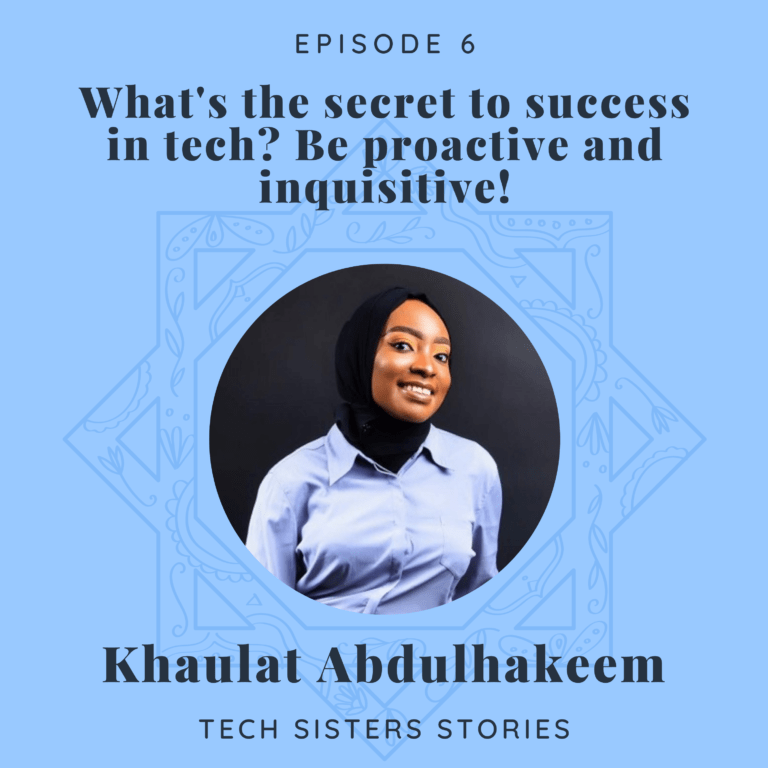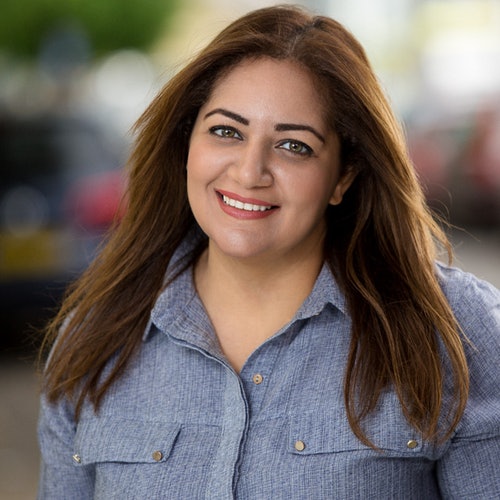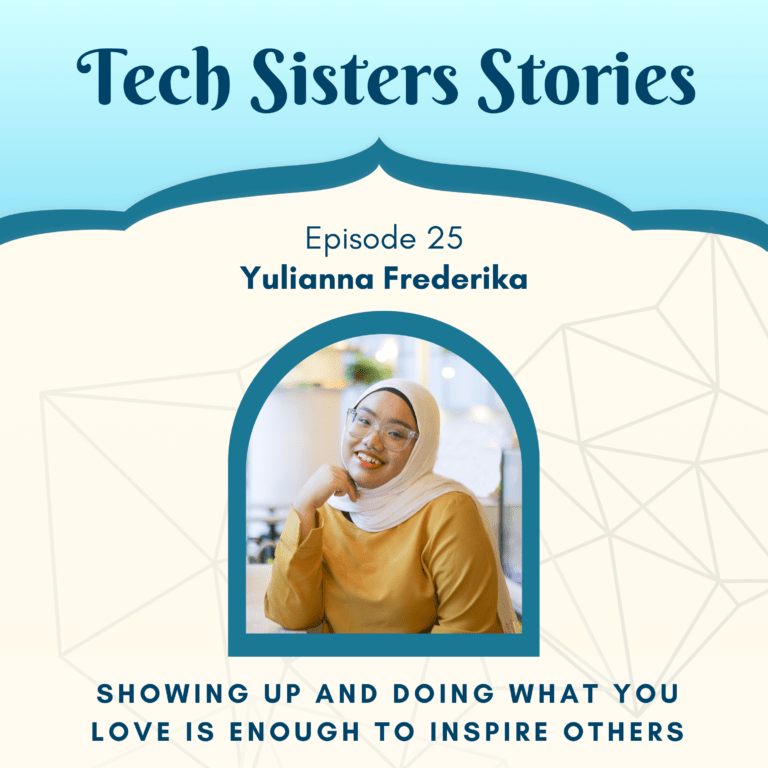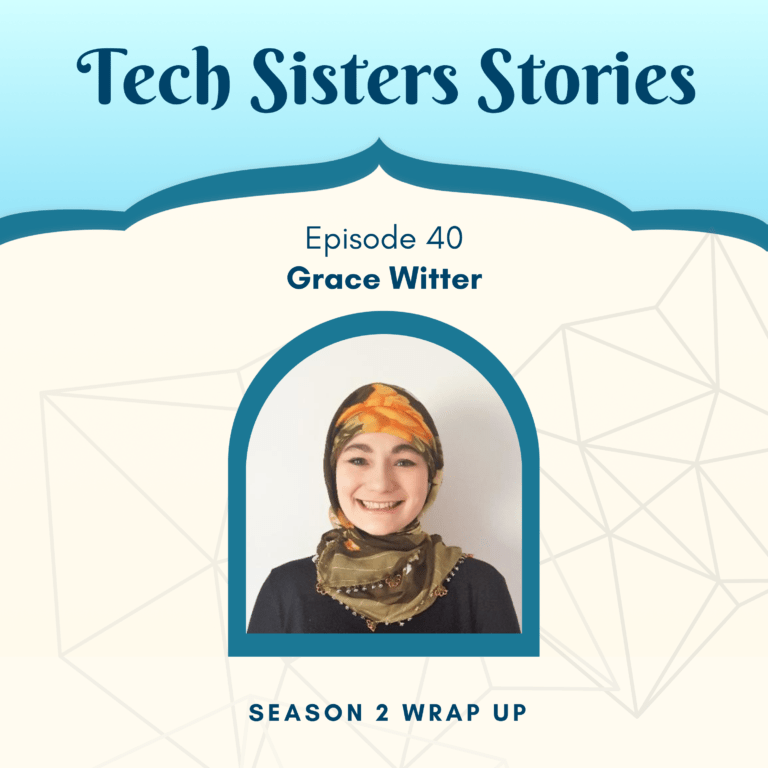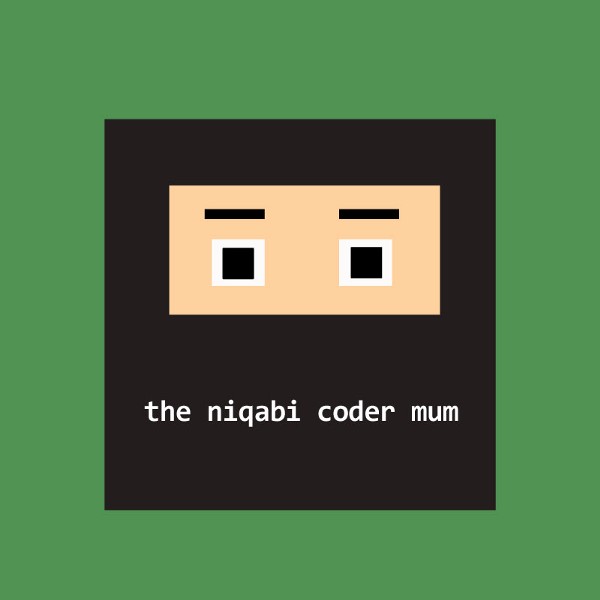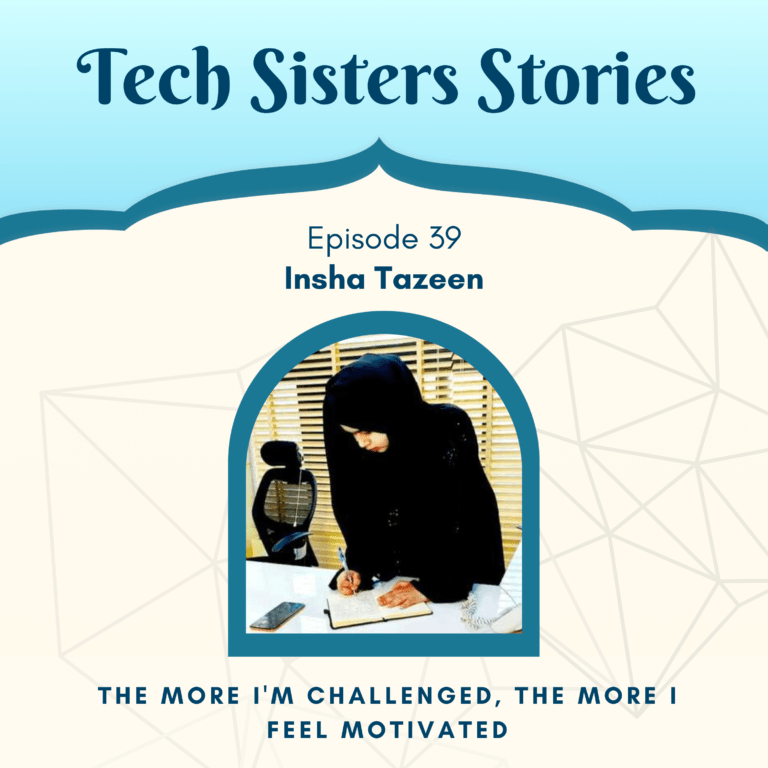Sheeza Shah — We Must Empower Social Enterprises

Sheeza Shah helps entrepreneurs build solutions to today’s big problems by using technology to improve their access to funding. She is the co-founder of UpEffect, a crowdfunding and support platform advancing opportunities for socially responsible leaders, and is the host of UpEffect’s new podcast, Re-envision Business. Sheeza is also a Founding Member and the Director of Operations at Zebras Unite, a founder-led, cooperatively owned movement creating the culture, capital and community for the next economy.
A recognised leading voice on alternative business and capital structures, Sheeza has been named in Forbes’ 20 Tech-for-Social-Good Startups to Watch, the Financial Times’ Top 100 Most Influential BAME Leaders in UK Tech, Computer Weekly’s Most Influential Women in UK Tech and Asians in Tech’s Top 100 Asian Stars in UK Tech.
We’re so excited to welcome Sheeza Shah as our latest Tech Sister!
Can you describe how you first got into tech?
My father has always been a guiding source of inspiration for me. I grew up watching him work incredibly hard; long hours, late nights, and weekends. To this day, he’s had a passionate work ethic and this has helped him build a successful software development company that has created tremendous value for the not-for-profit sector. Watching my father build a business using software was my first exposure to the potential of technology and that is probably what has driven my inquisitive interest in computers since a young age. I recall sitting on my grandfather’s lap as a young child, trying to understand the latest hardware or software that he had got his hands on. I vaguely remember sitting and exploring the latest Windows software on our trips to my grandparents. And I think that interest always stayed with me and led me to study Computer Science for my Undergraduate and Master’s degree.
Having seen my father, I always knew that I would eventually follow in his footsteps and start a business of my own. I also loved the flexibility that came with running a business which meant I could tailor my hours around the needs of my future children! It was important to me to get this balance right, and building an online and tech-enabled business was the best way to achieve this.
After graduation, I began working at my father’s company and recall falling in love with product and project management. I went on to complete the PRINCE2 Practitioner course and qualified which granted me the confidence I needed to consider my next steps in technology.
What made you want to start UpEffect?
There was a collection of moments and points of reflection that led to the creation of UpEffect. I identified a number of challenges and issues in the nonprofit world, tech space, and the funding landscape for businesses in particular for social enterprises, and realized there had to be another way to equip businesses with resources to solve societal problems. After much research, I came to identify two main areas that required improvement: the practice of philanthropy and capital allocation for social enterprises.
A broken model for charity
I spent a number of years working with a wide range of charities in different roles that largely fell under project management or fundraising. This experience helped me understand how money was being allocated to beneficiaries and what impact this had on marginalized communities. People would donate money to charities with good intentions and hope that their money would uplift communities and those experiencing poverty. However, much of this capital would be lost in unsustainable programs or tick box reporting exercises.
Ultimately, these charities were failing communities, trapping many in an endless cycle of poverty. Global poverty is still one of the biggest moral crises of our time despite the number of philanthropic activities we see across the world. The way most charities function means we’ve seen very little progress in alleviating the many challenges impacting underserved communities. I realized this needed to change. Most of the world’s capital sits with the world’s 1% and it’s just not allocated in favour of marginalised communities.
While researching Islamic economics, I learned that, beyond being unsustainable, donations and aid did little to equip individuals with financial independence. The economy truly needs businesses to create dignified jobs and economic opportunities so that everyone can walk shoulder to shoulder with the average working professional. This is the only way we can help individuals rise into financially independent positions or build businesses of their own. We need more sustainable opportunities for these communities. Around this time, I discovered social enterprises and the potential they offered for serving this need. I also felt the framework aligned perfectly with Islamic principles that advocated for justice, fair trade, ethics and community enrichment in business dealings and empowering those that don’t have access to economic opportunities. Prophet Muhammed (SAW) own personal business dealings always espoused honesty and integrity, something not often seen in the corporate world and I was pleasantly surprised to find a framework advocating for the same.
Social Enterprises Struggle Accessing Funding
As I delved deeper into this sector, I noticed that social enterprises stewarding incredible solutions were frequently denied access to traditional forms of capital. This was especially true for social enterprises led by women, immigrants, and diverse groups. They often have to work twice as hard as their white counterparts to get their businesses off the ground. I felt this was a huge disservice to the communities and beneficiaries that depended on these enterprises for survival.
While exploring alternative funding models, I felt crowdfunding offered huge potential to serve this gap. Again, it beautifully aligned with Islamic finance principles of democratizing access to funding and investing in communities. These are familiar concepts in the non-tech space, and I was excited by the challenge of making this available for a global audience.
The problems with crowdfunding platforms
But the crowdfunding space itself is rampant with challenges of its own. 64% of crowdfunding campaigns fail, which means campaigns that aren’t successful in meeting their campaign goal are unlikely to get to market. Many crowdfunding platforms are venture-backed, which affects the types of companies these platforms serve. Generally, companies that are successful at crowdfunding have ripe access to resources, capital, and networks which equips them to navigate crowdfunding. That’s not necessarily true for every entrepreneur, in particular social enterprises.
Enter UpEffect
All of these discoveries and learnings led to the inception of UpEffect and we wanted to tackle this focal issue in the crowdfunding space: low success rates. My co-founder and I felt that social enterprises deserved to get to market and were vital pillars for their communities. These businesses are essential in tackling today’s most pressing problems like social and economic injustice, climate change, lack of access to healthcare, illiteracy, and deserving of all resources and capital to bring these important ideas to life. Their existence is vital for building a kinder and more beneficial economy.
We set out to solve two key questions. First, how could we increase opportunities for social enterprises and make sure they received the capital they needed to sustain their operations? Secondly, how could we improve success rates through crowdfunding? We decided to focus on equipping founders with the tools and resources they needed to fundraise and build their businesses. Our support process has driven our platform’s 95% campaign success rate, which we believe is the highest in the industry.
Can you describe Zebras Unite and your role with them?
In addition to our crowdfunding services, we also offer strategic and consulting services for socially responsible organisations and we’re currently operationalizing Zebras Unite, a cooperative based in the US that is catalysing community, capital and culture for beneficial founders, investors and allies which we’re proud Founding Members of. This has been an incredibly exciting experience as we’ve been big admirers of the movement since we read their initial Medium publications, in particular, ‘Zebras fix what Unicorns break’.
The movement was started by four female founders, Mara Zepeda, Astrid Scholz, Jennifer Brandel and Aniyia Williams — each experienced similar frictions while building their businesses and soon discovered that the current funding landscape and the general pattern of how we build and support businesses was broken. The current system rewards quantity over quality and it often favours quick exits and unicorn businesses over sustainable and community centred businesses.
Meeting the Zebras
The Zebras Unite manifesto was like music to our ears; it perfectly captured the struggle and challenges we had experienced on our own journey and their introduction of the values that a Zebra company embodies was well aligned to how we had been building UpEffect. We spent many years wrestling against the status quo to keep others from boxing us to fit their view of how startups should be built and were determined to build with and for our customers in the way that best served their needs. We were regularly encouraged to raise investment and were ridiculed for focusing on profitability as in their view, burning someone else’s cash was the only way to achieve success. We knew very early on that bringing in investors was likely to compromise our business model which was centred on delivering crowdfunding support services versus scaling to serve high volumes of failing campaigns. This is when a friend working in the venture capital space shared the Zebras Unite article with me which she felt aligned with our goals. She was right and I almost instantly fell in love with their message. Mara Zepeda invited me to their inaugural event in Portland to share the concept of Zakat and what a 2.5% wealth tax had to offer to the startup ecosystem as an alternative funding instrument for communities in need. This was incredibly inspiring and refreshing — a non-Muslim organisation wants me to fly across the world to introduce the concept of Zakat? I was astonished and in awe of their openness to engage and learn from our communities. From there I went on to start the London Chapter then eventually joined as a Founding Member to help operationalise their cooperative.
Zebra Solidarity Fund
Earlier this year, Zebras Unite announced the launch of a Zebra Solidarity Fund. The specifics of that fund and the mechanism itself will be conceived with input from our members and they’ll have a say and a vote in how this gets built and who this capital gets allocated to. But the idea behind the fund was very much inspired by Zakat and to dissuade hoarding and redistributing wealth in the community. To my surprise, they made the decision to allocate 2.5% of their gross revenue rather than 2.5% of their idle assets which again was another remarkable step on their part! I feel incredibly proud and really grateful that Zebras Unite has always been open to taking inspiration from other communities and leaders from across the globe.
What advice would you give to Muslim women who want to become founders?
It’s definitely challenging when you don’t see our sectors offer the type of representation we seek but I’m grateful for the recent shift in amplifying the work stewarded by Muslim women across a wide range of organisations. There is also a growing community of Muslim female founders that have achieved tremendous success — I encourage aspiring founders to connect with them and actively find ways to support their organisations. This is a great way of supporting Muslim-led businesses but also presents you with the opportunity to engage with them and their work.
I would also encourage founders to work with others when pursuing the path of entrepreneurship — it can be an incredibly lonely experience and sharing the vision and workload with someone can be hugely beneficial. I do however recommend finding an aligned partner or going alone until you find the right cofounder.
Starting your own business is not for everyone but it in many ways affords you flexibility that employment most often does not. In my case, having a flexible schedule, being able to practice my faith and integrate my values into the work I do and being able to have a family and nurture it while doing aligned work were all factors that aided my decision to start UpEffect. It’s definitely challenging building a business from the ground up when the system is not by default designed to support diverse founders but building a community, serving a societal and/or environmental need and finding a sustainable model that allows you to prioritise revenue/profits is key.
I would also add that when you do decide to build a business it’s very easy to think of an idea and go all in. Make time to research the market and the challenges experienced by those in that market. Challenge your assumptions and collect data to support your claims. Work with the community and invite them on board so that you build for and with the community. In the absence of community support, it’s incredibly challenging building a successful and sustainable enterprise.
What’s the thing that you’re most proud of? What did you do, and why is it so special to you?
Two moments in my journey that really stand out to me. One is the creation of the Zebras Solidarity Fund. That was a really pivotal moment for me.
And the second was when I was honoured with the UK Business Woman of Excellence Award in front of over 5,000 women and thousands of others watching on TV. As an Ahmadi Muslim, I believe that everything that I do is in service of God and to be given the award by the Khalifa of the time was one of life’s greatest gifts. This was a moment that not even my wildest dreams could have conceived and will go down as one of the biggest highlights of my career.
What is something in your journey that you regret or wish you did differently?
I think we entered this space a little too early.There was a large educational piece to the work that we are doing. Like I said, a lot of people at the time were telling us to go down a different route and raise funding as that is what other crowdfunding platforms were doing. If we wanted to succeed, that was presented as the only route to attain that. And challenging that mindset and convincing our advisors and mentors and people within our community that it’s okay if we chart our own path was very challenging and draining. Especially when you’re doing things on a part time basis and you’re trying to earn money on the side. So to keep investing in an idea and continue believing in it and telling yourself that this is going to work when there’s no real examples that you can look to was probably the hardest part. I think maybe the alternative may have been to study the industry a little bit better and maybe work with some other founders and understand the ins and outs of building a crowdfunding platform. I will say that I’m incredibly proud that we’ve been able to get to our current stage without external funding and staying true to our goal of building with revenue (while raising a two-year-old!). I feel incredibly grateful for that.
What is something or someone in your tech journey that you’re grateful for?
My support system. I wouldn’t be here and still running UpEffect if it wasn’t for my parents, siblings, and husband. They’ve done so much for me and supported all the different phases! I’ve also leaned a lot from other founders who have graciously shared advice and lessons of their own. Many of them have heard me cry and supported me during the deep lows of building a company. Also I have tremendous gratitude for all the mentors and advisors who have been weighed in at different stages to help us. I would not have been able to do without the their help.
We’ve received a lot of welcoming support along this journey, and I’m so grateful to everyone that’s made a difference. I may not have been able to express it to everyone, but they’ve all hugely contributed to where we are today.
Finally, a special thank you to Zebras Unite for continuously uplifting our work and finding creative ways of collaborating to unite under our shared dream of building a kinder economy.
